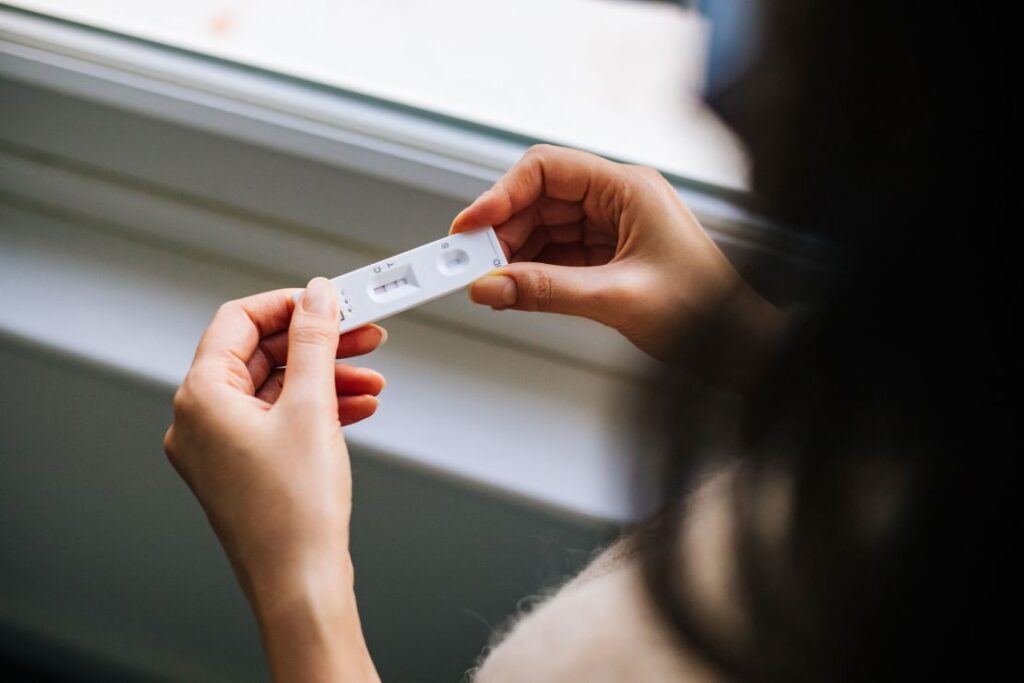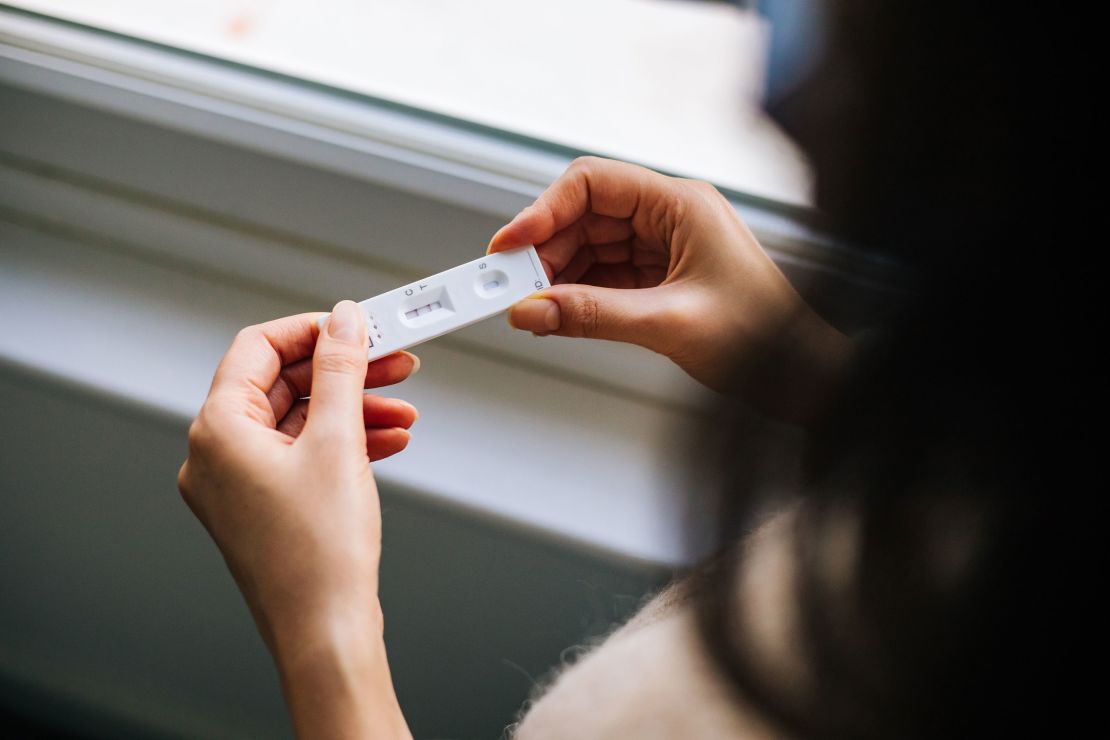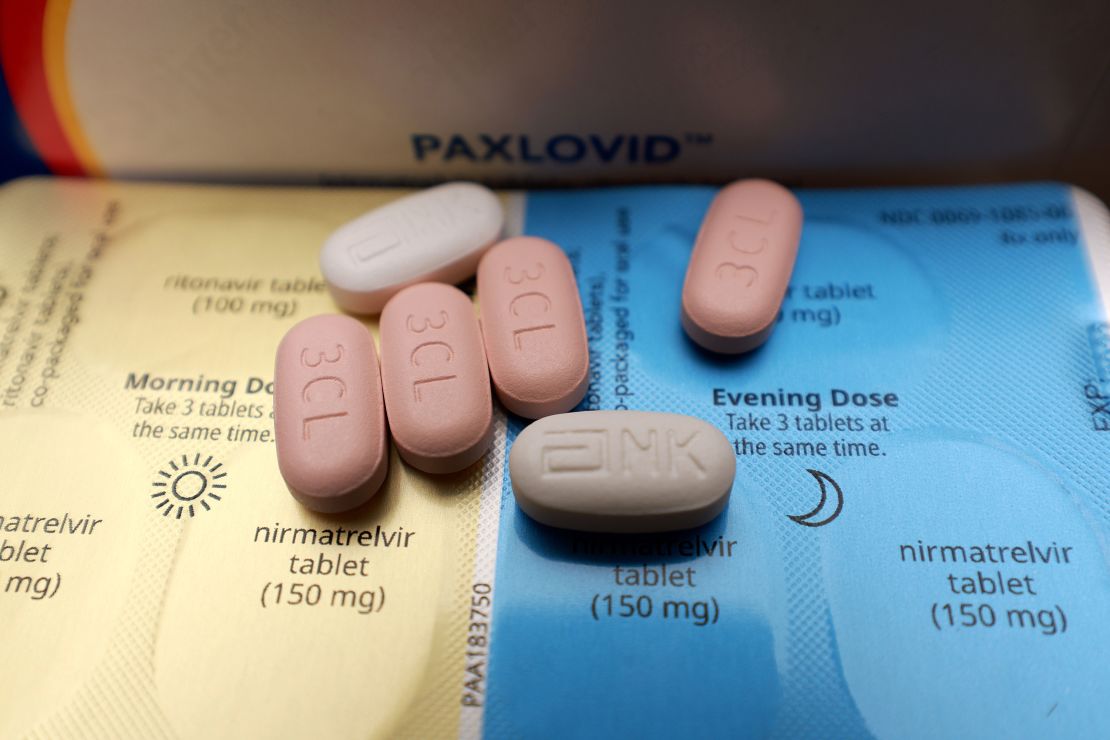
Get inspired by a weekly roundup on living well, made simple. Sign up for CNN’s Life, But Better newsletter for information and tools designed to improve your well-being.
Story highlights
Getting a Covid-19 vaccination reduces risk of hospitalization or death
All should have a plan in the event of infection, our medical expert advises
There are treatments available for patients not eligible for Paxlovid
CNN
—
Covid-19 finally got me.
After nearly four years of never testing positive for Covid-19 while editing pandemic coverage alongside my good friends at CNN Health, I caught the latest variant and was down for the count. I am no longer a Novid — what I hear people called who have never gotten sick from the coronavirus.
Within an hour of testing positive on two at-home tests last month, I scheduled a telehealth appointment with my doctor.
Because I’ve heard from colleagues about the underutilization of Paxlovid, which can reduce the length and severity of the illness, I asked my doctor if it could help me. He warned me about the possible rebound of the disease and other potential side effects and sent in a prescription.

Within 48 hours, just as he predicted, I was feeling better. I still isolated from my family in my bedroom, took cold meds to help with symptoms and streamed so much television in between naps. (How does anyone fall asleep to “Hamilton”? That would be me.)
In between naps, I could feel the difference in my stress levels between now and four years ago, when I worried that a diagnosis could mean dying, sometimes with strangers in a hospital. There was no vaccine or medicine to help me feel better back then. My friends lost loved ones, and we collectively have lost more than 7 million people worldwide, according to World Health Organization data as of January 28.
Even though we are in a better place, Covid-19 can still be dangerous. We lost 1,427 people globally in the last week ending January 28, according to WHO data. So, I thought to ask Dr. Leana Wen about the steps you can take to reduce the effects of Covid-19. Wen is a CNN wellness medical expert, emergency physician and adjunct associate professor at George Washington University. She previously was Baltimore’s health commissioner.
CNN: Do we really still need to get vaccinated against Covid-19?
Dr. Leana Wen: Yes, and it’s not too late to get your vaccine. The US Centers for Disease Control and Prevention recommends that all eligible people should be up to date on their Covid-19 shots. That means people should receive the updated vaccine that was released in fall 2023.
Recent data from the CDC is very encouraging that the shot, which targets the Omicron subvariant XBB.1.5, appears effective against currently circulating strains. According to a new report, people who received this shot had 54% increased protection against symptomatic coronavirus infection compared with those who did not receive the updated vaccine. The vaccine’s protection appears to extend well against the currently dominant variant, JN.1.
It’s not yet known how well the updated shot protects against severe disease — but based on the protection afforded by prior versions of the Covid-19 vaccine, I would expect that the shot provides robust protection against hospitalization and death.
It’s primarily for that reason that I would recommend people, especially those most vulnerable to severe disease from Covid-19, to receive the updated vaccine. Many people would also want the benefit of reducing symptomatic disease. After all, getting ill is inconvenient. Each illness poses the risk of long Covid. And even if someone isn’t concerned about the coronavirus themselves, infection increases risk to people around them.
There are more key points I want to emphasize: The Covid-19 vaccine is not going to protect you 100% from contracting the virus. Catching the virus despite vaccination does not mean that the vaccine has failed. Vaccination decreased your likelihood of getting Covid-19, and most crucially, it reduced your chances of becoming so sick that you need to be on a respirator or worse.
CNN: If I think I have Covid-19, what should I do next?
Wen: First, you need to make sure that what you have is actually Covid-19. Influenza and the respiratory syncytial virus, or RSV, are still circulating at high numbers, and there are hundreds of other viruses that can cause cold-like symptoms.
If you are someone who would take antiviral treatments if you develop Covid-19, you should take a rapid home test if you develop concerning symptoms such as a cough, fever, shortness of breath and fatigue.
If the home test is negative, I recommend that you test again each day for the next several days. That’s because the viral load may not be high enough initially to trigger a positive test. You could also consider calling your doctor and getting a laboratory PCR test.
You should also consider getting tested for the flu, as antiviral treatments are available for influenza, too.
CNN: What happens if one of these Covid-19 tests is positive?
Wen: Everyone should have a plan for what happens if they have Covid-19. Know if you are eligible to receive antiviral treatment. Those who should strongly consider antiviral treatment are those who are at high risk for severe illness if they were to contract the coronavirus: people ages 65 and older, those 50 and older with chronic underlying medical conditions, and people who are immunocompromised or have other medical concerns that predispose them to severe illness.

The antiviral pill Paxlovid is a highly effective treatment and should be urged for these high-risk individuals. Some people have medication interactions with existing medications. Ask your doctor if you could still take Paxlovid if one of those other medications were temporarily stopped.
Those ineligible for Paxlovid should consider two other treatments, the oral pill molnupiravir as well as remdesivir, which is given through injection or infusion.
CNN: Is there anything that people who are immunocompromised should do differently?
Wen: People who are moderately or severely immunocompromised are among those at high risk if they contracted Covid-19. They should take Paxlovid if they are eligible, and if not, have a plan for accessing one of the other antiviral medications. If they test positive for the flu, they should take Tamiflu (or other names for the flu antiviral).
CNN: What else should people do once they find out they have Covid-19?
Wen: Individuals who test positive should stay home for at least five days and isolate from others, according to CDC guidance. If they must be around others in their home, they should wear a high-quality mask, but ideally, they should stay away from those in their households to reduce their chance of passing the virus on to them.
That includes using a separate bathroom, if possible; taking steps to improve ventilation like opening windows; and not sharing personal household items such as plates, cups and utensils. The guidelines further go on to say that after five days, individuals diagnosed with the coronavirus can go into public places, but for the next five days, they should wear a high-quality mask around others.
I would add to this guidance and say that people should be especially careful if those in their households are at high risk for severe illness. Do not share meals indoors with them or otherwise share indoor space with them until your home test is negative. A negative home test is not required to exit isolation as per CDC guidance, but if you live with your elderly parents, for instance, you should take extra care to shield them from infection.
CNN: Should I feel bad that I finally contracted Covid-19?
Wen: No. You have joined the vast majority of people who have contracted and recovered from Covid-19. The coronavirus is a highly contagious respiratory virus that is very difficult to avoid. This is why it’s so important to protect ourselves as well as we can from the severe effects of this virus, including through being up to date on vaccines and accessing antiviral treatments.